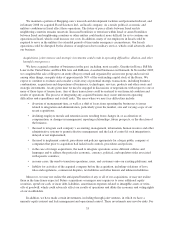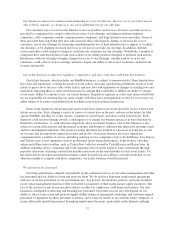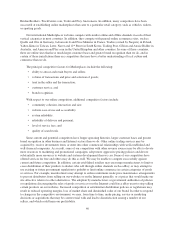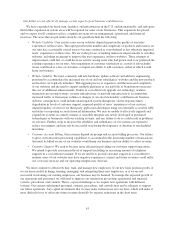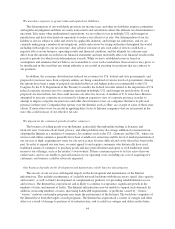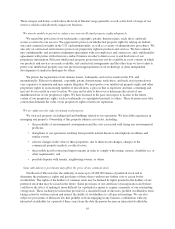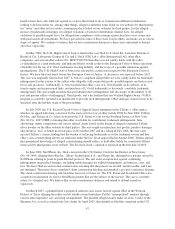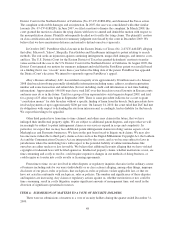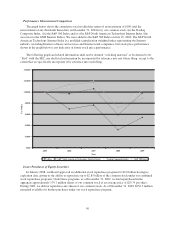eBay 2009 Annual Report Download - page 48
Download and view the complete annual report
Please find page 48 of the 2009 eBay annual report below. You can navigate through the pages in the report by either clicking on the pages listed below, or by using the keyword search tool below to find specific information within the annual report.Ritchie Brothers, TruckCenter.com, Yoder and Frey Auctioneers. In addition, many competitors have been
successful at establishing online marketplaces that cater to a particular retail category, such as vehicles, tickets,
or sporting goods.
Our international Marketplaces websites compete with similar online and offline channels in each of their
vertical categories in most countries. In addition, they compete with general online ecommerce sites, such as
Quelle and Otto in Germany, Leboncoin.fr and Price Minister in France, Tradus (owned by Naspers) in Poland,
Yahoo-Kimo in Taiwan, Lotte, Naver and 11th Street in South Korea, Trading Post, OZtion and Aussie Bidder in
Australia, and Amazon and Play.com in the United Kingdom and other countries. In some of these countries,
there are online sites that have much larger customer bases and greater brand recognition than we do, and in
certain of these jurisdictions there are competitors that may have a better understanding of local culture and
commerce than we do.
The principal competitive factors for Marketplaces include the following:
• ability to attract and retain buyers and sellers;
• volume of transactions and price and selection of goods;
• trust in the seller and the transaction;
• customer service; and
• brand recognition.
With respect to our online competition, additional competitive factors include:
• community cohesion, interaction and size;
• website ease-of-use and accessibility;
• system reliability;
• reliability of delivery and payment;
• level of service fees; and
• quality of search tools.
Some current and potential competitors have longer operating histories, larger customer bases and greater
brand recognition in other business and Internet sectors than we do. Other online trading services may be
acquired by, receive investments from, or enter into other commercial relationships with well-established and
well-financed companies. As a result, some of our competitors with other revenue sources may be able to devote
more resources to marketing and promotional campaigns, adopt more aggressive pricing policies and devote
substantially more resources to website and systems development than we can. Some of our competitors have
offered services for free and others may do this as well. We may be unable to compete successfully against
current and future competitors. In addition, certain established retailers may encourage manufacturers to limit or
cease distribution of their products to dealers who sell through online channels such as eBay, or may attempt to
use existing or future government regulation to prohibit or limit online commerce in certain categories of goods
or services. For example, manufacturers may attempt to enforce minimum resale price maintenance arrangements
to prevent distributors from selling on our websites or on the Internet generally, or at prices that would make our
site attractive relative to other alternatives. The adoption by manufacturers or government authorities of policies
or regulations discouraging the sales of goods or services over the Internet could force eBay users to stop selling
certain products on our websites. Increased competition or anti-Internet distribution policies or regulations may
result in reduced operating margins, loss of market share and diminished value of our brand. In order to respond
to changes in the competitive environment, we may, from time to time, make pricing, service or marketing
decisions or acquisitions that may be controversial with and lead to dissatisfaction among a number of our
sellers, and which could harm our profitability.
40





